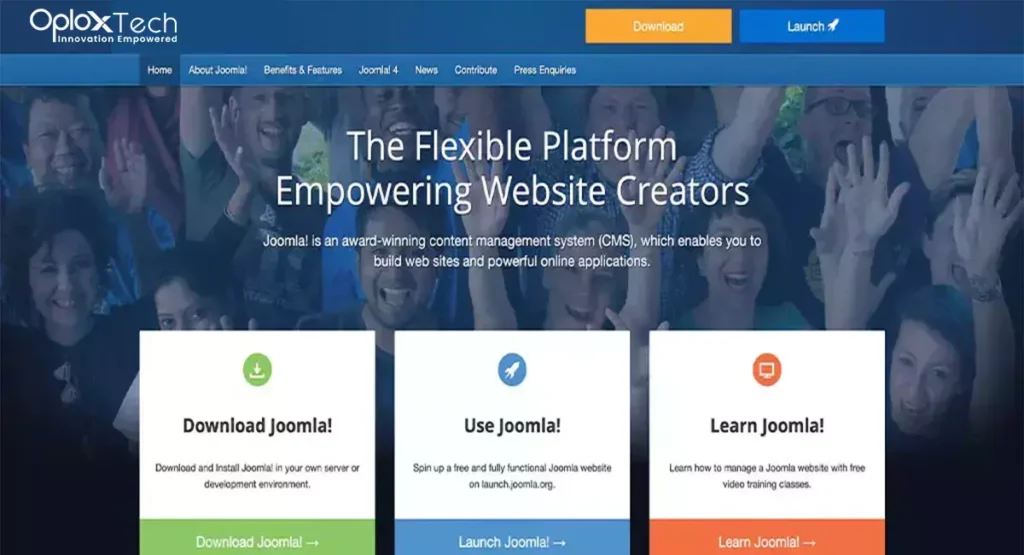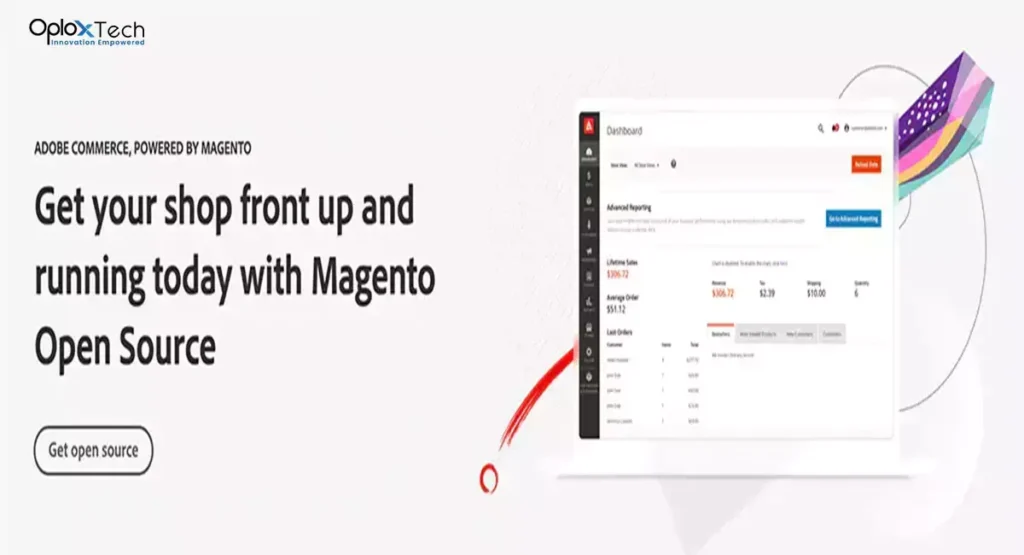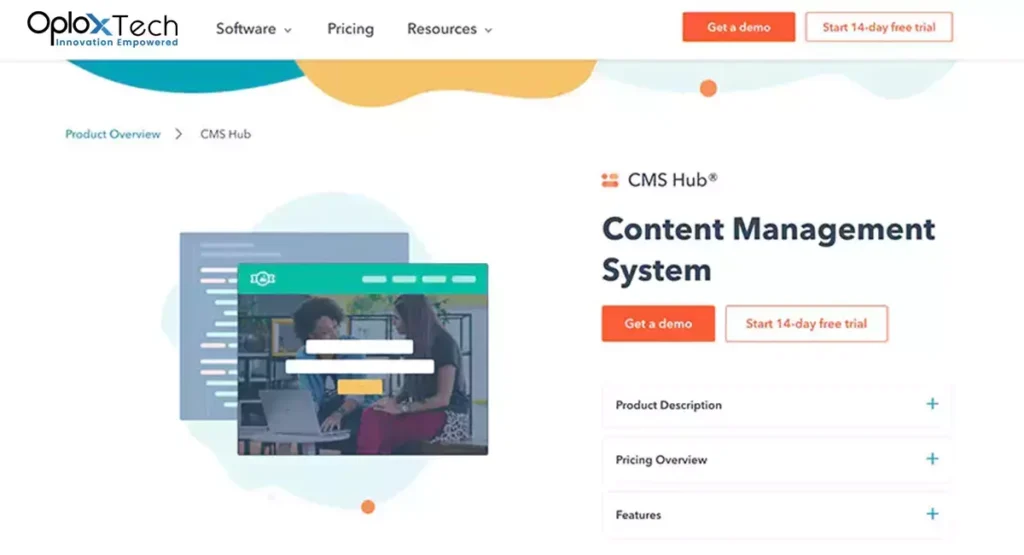As more organizations strive to build an online presence, it seems that the corporate world has realized this. Today, consumers have millions of websites to choose from. The market now offers a plethora of content management system options. Therefore, understanding what you want to accomplish with your website is crucial to choose the most appropriate platform.
How do you succeed in this fierce competition?
How can you maximize site traffic?
The answer, deliver compelling, original online content in design, video, and text.
Simple. Is it that easy to implement?
No. Content management is hard. To assure quality, it takes time and effort to do it all by yourself. Then you couldn’t concentrate on other business areas.
Relax! CMS helps.
What is Content Management System?
If you want to organize your material in the most effective manner, you need content management software. In addition to making your site safe, mobile-friendly, and search engine-friendly, a robust content management system can assist you in creating compelling, up-to-date material.
10 Content Management Systems that help in growing in 2022
If you want to make an impression in the digital world, you need content management software. There should be no doubts. This means you should never accept second best. Okay, so that’s not necessary. The top 10 CMSs available in 2022 are shown below. View this:
1- WordPress

If WordPress isn’t included, the list of CMSs can’t be considered complete. WordPress is one of the most popular content management systems (CMS) out there, serving tens of thousands of users at enterprises of all sizes. The software comes with a wide variety of useful features, helpful customer service, and reasonable rates. WordPress’s robust capabilities include, among many others, search engine optimization (SEO) management, website administration, version control, customizable themes, image editor, video content, comment moderation, analytics, and much more besides.
WordPress evolved from its humble beginnings as a blogging platform with the help of a wide variety of add-ons, including plugins, themes, widgets, and templates, into a full-fledged content management system. You may also use the WordPress.com service to create a free blog or website and host it on a third-party server.
2- Joomla

If you’re a professional needing a free open-source CMS with a lot of room for customization and add-ons, consider Joomla. It’s free to set up, but you’ll need to pay for hosting and a domain name.
Because of its extensive library of templates and plugins, Joomla is a great choice if you need to construct something highly customized and intricate. You may also make changes to your content without needing to know any code. With the help of its add-ons, Joomla can also be used to create and manage an online shop.
Since it is open-source and welcomes user contributions, there is a sizable user base that can help you out if you run into any trouble when working with the content management system.
3- Drupal

Without a doubt, Drupal is one of the most effective content management systems available today. This open-source software is used to power many different online e-commerce and publication platforms and is often referred to as a “community publishing system.”
Drupal is a platform designed specifically for use as a social network. The program can help you create social media pages and websites that are both basic and complex. When it comes to CMS, Drupal is ideal for bloggers as well. E-forms, complex menu management, a text editor, video/audio content, full-text search, website administration, etc. are just some of the features it provides.
4- Wix

With Wix, even a novice can create a professional-looking website in a short amount of time.
The simple drag-and-drop editor speeds up the process of creating unique web pages. Just choose a region of the page you want to modify and go from there.
In addition, you may choose from among five hundred or more premade website themes to give your site a polished, expert look right from the get. All of the themes are responsive, so they’ll look fantastic on any device.
There are a wide variety of useful applications available in the Wix App Market that may be added to your site to expand its functionality. You may automate your email marketing, pop-ups, and text messages with the help of a Privy integration. There is also a tool called Simple Affiliate that facilitates partnerships between your brand and affiliates.
The most significant drawback to using Wix is that once you choose a layout, you can’t change it. As a result, you can be forced to choose a solution that is suboptimal for your company.
Though Wix’s user interface is intuitive, it lacks the functionality of more robust platforms like WordPress and WooCommerce. Wix isn’t the best option for a complex web portfolio, but it could be fine for a basic one.
5- Magento

Magento is primarily an e-commerce platform but offers content management system solutions for online stores. You have access to a wide variety of customization options, complex features such as search engine optimization management, multiple user accounts, pre-built themes, templates, and plug-ins, as well as a number of interfaces with third-party services.
You are able to create and manage a multitude of shops and custom pages, in addition to a wide variety of media files and pictures, with the assistance of Magento eCommerce. This free and open-source content management software would be an excellent alternative for you to consider if you are in charge of maintaining an online store.
6- Shopify

If you’re a merchant thinking about opening an online store, you should check out Shopify, a hosted content management system (CMS) that has everything you need. Shopify is another CMS with a user-friendly drag-and-drop interface.
It takes care of the nitty-gritty for you, so you won’t have to worry about things like hosting, software upgrades, or backups.
Shopify features a vast collection of pre-made visual templates and themes that may serve as inspiration for your store’s identity, with examples ranging from cafes to rugs.
Shopify also allows you to connect your business with a wide variety of useful applications and services. You can integrate Shopify with email marketing software, landing page builders, and payment processing programs.
With custom Shopify development built-in payment gateway, Shopify Payments, you may take credit and debit card payments. Shopify integrates with a number of popular payment gateways, one of which is PayPal. In-store transactions are supported, which is useful if you run a physical shop in addition to your online business.
7- Squarespace

Create a cutting-edge web presence powered by the robust Squarespace content management system. The program provides a wide range of configurations for altering the default layouts. Easily customize the look of your site by switching up the color scheme, font family, and theme.
This cutting-edge platform also provides a drag-and-drop editor, online booking facilities, pre-built themes, web forms, an online shop builder, interfaces with third-party services, as well as detailed statistics.
No, that’s not the point. When you contact Squarespace’s helpful customer service staff through live chat or email, you’ll get a response within minutes. Now that you have everything you need, dealing with your internet presence should be a breeze.
8- HubSpot

HubSpot combines the functions of CMS with those of a CRM in a single, convenient package. For entrepreneurs and marketers in need of a comprehensive platform, this is it. Tools for marketing automation, business management, customer care, and sales are all included in HubSpot.
The drag-and-drop website creator is so basic, that a novice could use it. It is easy to create and optimize website content with the help of features like a drag-and-drop editor, in-built SEO tools, and contact attribution.
Using a pre-made theme greatly simplifies website creation. With the availability of optional custom development, you also won’t have to stress about inconsistencies in aesthetics, branding, or menu structure.
The success of your website may be measured with accurate contact attribution. Discover which content formats, media outlets, and promotional initiatives are generating the greatest interest and sales.
Using adaptive testing, you may refine your website in an iterative fashion. With HubSpot, you can create and test as many as five unique versions of a webpage, with the service automatically displaying the most successful variant.
Integrating HubSpot’s content management system (CMS) with their email marketing tool and sales CRM simplifies the process of streamlining processes.
9- Big Commerce

BigCommerce is another completely hosted platform for creating online stores, much like Shopify. You may open up shop, start making sales, and begin making money instantly.
Non-technical customers may get up and running quickly without having to pay for expensive development assistance thanks to the variety of pre-made themes and storefront templates available.
BigCommerce is an all-inclusive, hosted platform, so you never have to worry about web hosting, security, or maintenance.
There is a 24/7 help desk available, which is perhaps the nicest feature. When using an open-source CMS, you’ll need to figure out solutions on your own; with BigCommerce, however, you can always count on a helpful team of experts to answer your questions.
10- Contentful

The next piece of popular software to make it into our list of content management systems is called Contentful. Because all of the developed contents are available through the integrated APIs of the platform, you have the ability to show your material for any purpose and practically wherever you want.
Document indexing, full-text searching, version control, image editing, text editing, digital asset management, and other collaboration tools are some of the primary services that Contentful provides for its users.
There is a user-friendly editing interface available for writers to utilize so that they can manage material, and developers have the ability to provide the information in the programming language and template framework of their choosing.
Wondering the best among them?

WordPress of course, because according to a recent survey WordPress alone is the CMS of 42% of websites Word Wide.
WordPress, in contrast to Wix and Squarespace, gives you complete control over your website and the data on your website. Using WordPress, you may generate income from any source, including advertisements and affiliate links, if you so want. Your site’s files are accessible on your own computer, where you may also edit, save, and manage them. Regarding the customization of the appearance of your website, everything goes.
The Conclusion: The leading content management system platform in 2022
When it comes to naming one platform as the finest CMS platform and the best of all content management systems now available, the decision is obviously not an easy one.
Nevertheless, we suggest using WordPress. It is now the most popular content management system on the market, and it is also continuously evolving, with thousands of developers from across the world working on making it better every single day.
The large number of plugins that are now accessible may enable simple and user-friendly drag-and-drop capabilities, which makes it possible for newcomers to get started in a short amount of time. In addition, if the web hosting environment and configuration are properly configured, even the security flaws in WordPress may be fixed and kept up to date with a minimum of work.
We know exactly what you and how to ensure your business flourish. Trust OploxTech with your website development and we will never let you down!


